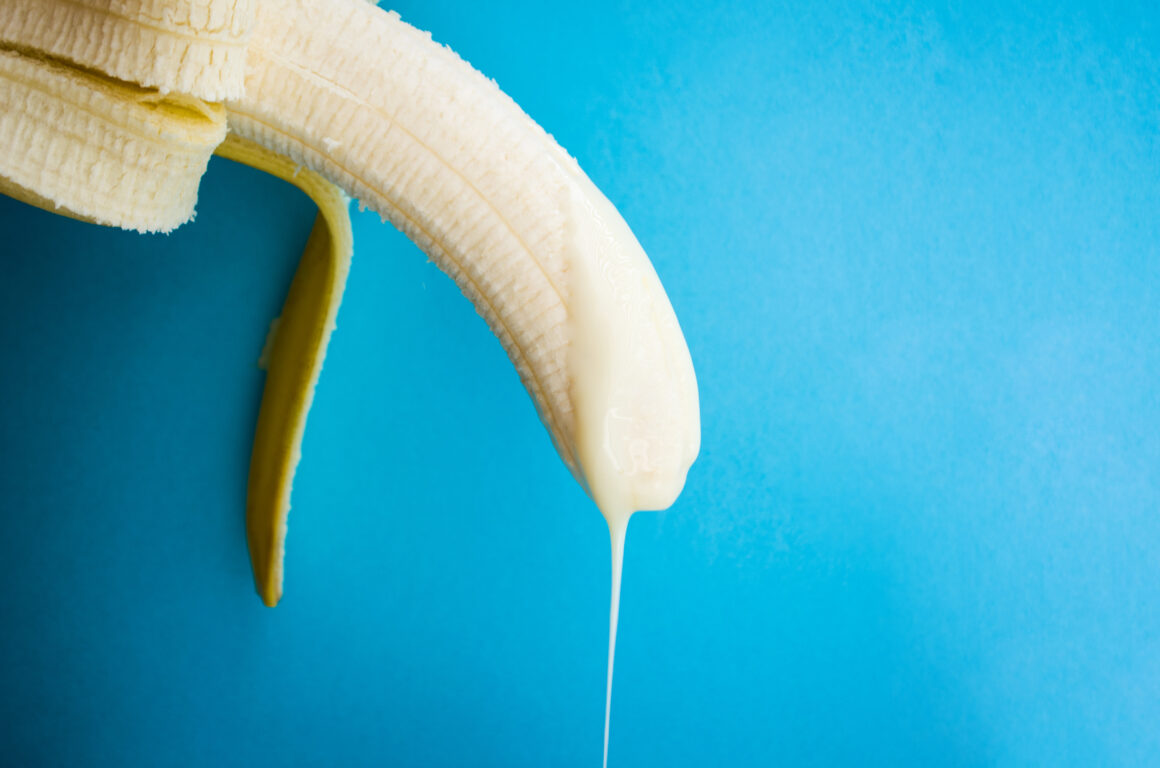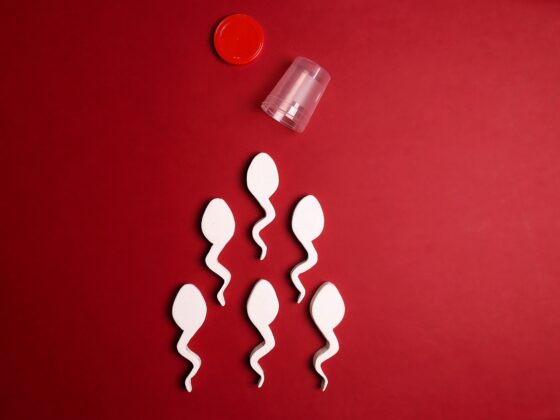Have you ever found yourself deep in a moment of self-pleasure, so immersive that time just slips away? Think back to a time when what started as a quick moment for yourself turned into something longer and unexpectedly fulfilling. It’s like finishing a good book or a long run – you end up feeling a mix of exhaustion and a profound sense of discovery.
Masturbation is deeply personal and varies greatly from person to person. It’s not about following a set script; it’s about what feels right for you.
The conversation about self-pleasure is really about understanding and embracing our own sexual wellbeing. Recognize that each person’s approach to solo sexual experiences is unique. There’s no standard playbook that everyone should adhere to.

Understanding Masturbation Norms
Diving into the topic of self-pleasure, it’s crucial to recognize that masturbation is less of a rigid routine and more of a personal rhythm. Like any other individual preference, the frequency of these intimate solos varies widely among men, shaped by their unique desires, physical needs, and life circumstances. Indeed, while some believe that daily indulgence keeps the doctor away, others find that a more sporadic approach harmonizes with their libido and lifestyle. The key is to listen to your body’s cues and perform your private concerts accordingly, without being swayed by the external tempo of societal expectations.
Masturbation Frequency Across Different Age Groups
Masturbation habits naturally change as men navigate the different stages of life—adolescence, adulthood, and senior years.
Regular ejaculation reduces the risk of prostate cancer, enhancing the health benefits of this intimate practice.
Adolescents often discover masturbation as a novelty, facing a surge in hormones. This can lead to frequent encounters with their sexuality as they explore and learn about their bodies.
In adulthood, responsibilities and stress might tune the frequency down a notch, as spare time becomes a limited resource, and sexual energies are often shared with partners.
For older gentlemen, libido may wane due to hormonal changes, yet masturbation remains a key solo act, helping to maintain sexual function and overall well-being.
Cultural and Societal Influences
Our intimate habits are often subtly choreographed by the cultural milieu in which we swing.
- Religious beliefs may cast masturbation in a sinful light or promote abstinence, influencing individuals to suppress their natural urges.
- Societal norms place varying degrees of emphasis on sexual self-exploration, with some cultures taking a more open-minded stance than others.
- Media portrayals often depict an unrealistic frequency and intensity of sexual activity, setting high or misleading benchmarks for personal sexual behavior.
- Peer pressure can skew one’s perception of what is deemed ‘normal,’ potentially leading to feelings of inadequacy or the urge to conform.
- Educational programming swings the pendulum by either providing comprehensive sexual education or allowing myths and misconceptions to fester.The rhythm of self-pleasure can be disrupted by these external beats, pushing some to extremes or silencing others entirely.
Yet, it’s critical to find your own rhythm, unhindered by the crescendo of collective opinion, and to waltz with whatever tune your body composes.
Health Benefits and Risks
Masturbation, a solo act often performed in private, can be akin to a personal symphony for stress relief, endorphin production, and promotion of sexual health. However, excessive indulgence can potentially lead to desensitization or psychological dependency, which may require professional guidance to moderate.
Like any vigorous activity, moderation is key—striking a balance ensures that masturbation remains a healthy, pleasurable part of your sexual repertoire without overshadowing other aspects of a well-rounded life.
Psychological and Physical Advantages
Masturbation isn’t just a solo act; it’s a personal tune-up for your mind and body. Regular masturbation can help keep your sexual system humming, increasing blood flow and oxygenation in the genital region, enhancing sexual function.
By venting pent-up sexual energy, masturbation offers an immediate way to reduce stress and tension. It’s linked with the release of endorphins, the body’s feel-good hormones, which can improve mood and create a sense of well-being.
To really ramp up the feel-good vibes and endorphin rush from your solo sessions, why not throw a Bathmate pleasure accessory into the mix? These are specially crafted for top-notch enjoyment and comfort – a perfect way to spice up the pleasure experience.
Not just an emotional balm, masturbation can bolster your body’s immunity. The act increases the levels of certain hormones that are known to fortify the immune system, potentially offering a small boost to your body’s defenses against ailments.
Additionally, masturbation can aid in sleep quality by serving as a natural sleep sedative. The relaxation that follows an orgasm often results in a state of drowsiness, assisting those who struggle with sleeplessness or insomnia.
Above all, self-pleasure can catalyze an intimate knowledge of one’s body, enabling individuals to discover what brings pleasure, deepening sexual intimacy both with oneself and with partners.

Potential Overindulgence Consequences
While masturbation is natural and healthy, excessive indulgence might have unintended effects.
- Diminished Sexual Sensitivity: Overstimulation may lead to reduced sensation during sexual encounters.
- Disrupted Daily Functioning: Constant masturbation can disrupt work, social activities, and daily routines.
- Psychological Distress: Feelings of shame, guilt, or anxiety may arise from perceived over-masturbation.
- Physical Irritation: The skin of the genitals can become irritated or injured due to continuous friction. It’s important to balance self-pleasure with other life aspects to avoid these consequences.
Though the line between enjoyment and excess can be fuzzy, being mindful of compulsive behavior is crucial to maintaining a healthy relationship with masturbation.
Personal Satisfaction vs. Compulsion
Masturbation is all about your personal satisfaction and well-being. It’s that special time you set aside for yourself, a way to honor your own body and deepen your understanding of your sexual desires. It’s an important part of self-care, a way to celebrate your independence and personal choice.
However, it’s essential to be mindful of the balance. If you find yourself feeling compelled to masturbate, driven by an overwhelming urge rather than a desire for pleasure, it might be time to reevaluate. It’s important to reflect on why you’re doing it. If it starts to feel more like a chore or a source of anxiety rather than a pleasurable and voluntary act, then it might be time to adjust your approach. Think about finding a balance that respects both your desires and your overall mental and physical health.
Recognizing Healthy Habits
Recognizing a healthy masturbation frequency is pivotal to sexual wellness and overall peace of mind.
- Listen to Your Body: Tune into your physical responses for signs of discomfort or excessive fatigue.
- Balance Is Key: Aim to integrate masturbation as one aspect of a diverse routine that includes social activities, exercise, and relaxation.
- Self-Reflection: Periodically check in with yourself to determine if masturbation is enriching your life or creating stress.
- No Set Norms: Understand there’s no universal ‘correct’ frequency—what’s right varies per individual.
- Open Dialogue: Keep communication channels open with sexual partners or healthcare providers about your habits. Observing these practices promotes not just sexual health, but holistic well-being.
Engage in self-pleasure without losing sight of life’s myriad dimensions and responsibilities.
Identifying Signs of Addiction

Signs of a possible masturbation addiction may include a persistent preoccupation with sexual thoughts, overriding the need for other activities.
Neglecting responsibilities or relationships in favor of masturbation is a telling sign of problematic behavior.
Additional indicators might be feelings of guilt or shame post-masturbation, especially if these feelings become pervasive.
Masturbating in response to negative emotions, rather than as part of a balanced sexual life, can signal trouble.
When masturbation becomes compulsive — needing to masturbate at a significant cost to personal health, professional commitments, or social interactions — it’s time to reconsider one’s habits.
Lastly, a reduction in sexual pleasure or difficulty becoming aroused without masturbation may develop, indicating a potential addiction.
Finding Your Optimal Frequency
When it comes to fine-tuning your masturbation routine, there’s no one-size-fits-all answer. What’s paramount is discovering a rhythm that complements your lifestyle, satisfies your sexual needs, and still leaves room for other life pursuits. Think of masturbation as one piece of your holistic wellness puzzle, fitting snugly without forcing other pieces out of place.
To nail down your personal cadence, it’s wise to consider your physical and emotional responses post-masturbation. If you’re consistently feeling energized and content, that’s a green light. However, if negative rebounds such as fatigue or emotional downturn occur regularly, you might need to adjust your frequency. Remember, the goal is to enhance your life, not to create a new source of stress.
Listening to Your Body’s Needs
Your body is the ultimate expert when it comes to personal pleasure and well-being. Pay attention to signals such as fatigue, irritability, or changes in sexual drive after masturbation. These could be subtle hints from your physiology about optimal practice frequency.
Consider how masturbation fits into your daily routine. A balanced approach never overshadows other life responsibilities.
Overindulgence might lead to desensitization, making it harder to enjoy physical intimacy. It’s crucial to monitor for any dips in sensation or pleasure. Should these arise, it might be time to give your body a break and recalibrate.
Masturbation should not be a compulsive act, but a mindful engagement that enriches your sexual health. If it starts to feel like an obligatory task rather than a moment of personal intimacy, it may signal overuse. In this context, mindfulness is key—a pause could rekindle both the joy and the physiological benefits of self-pleasure.
Balancing Pleasure with Everyday Life
Masturbation, a journey of self-exploration, should harmoniously coexist with the fabric of your day-to-day life. When you integrate this intimate act thoughtfully, it complements rather than competes with your daily objectives.
Striking the right frequency is a personal quest. There’s no one-size-fits-all answer here.
When your solo time tips the scales, and you start noticing those critical work emails going unanswered or social invites perpetually declined, you may be veering off the balance beam. It’s pivotal to ensure your pursuit of pleasure doesn’t encroach upon other life domains, such as work, friendships, and overall wellbeing.
Incorporate masturbation as an enhancer, not a central fixture. It should add to your life’s tapestry, not pull threads. Think of it as seasoning—a pinch adds flavor, but an overflow can spoil the dish. It’s about finding that sweet spot where masturbation feels like a healthy addition, not an escape or crutch. Listen to the rhythms of your life and adjust accordingly. When in doubt, less is often more—overindulgence never tastes as sweet as moderation seasoned to perfection.
Indeed, whether single or paired, one’s approach to masturbation might shift to complement the dynamics of intimate relations.










